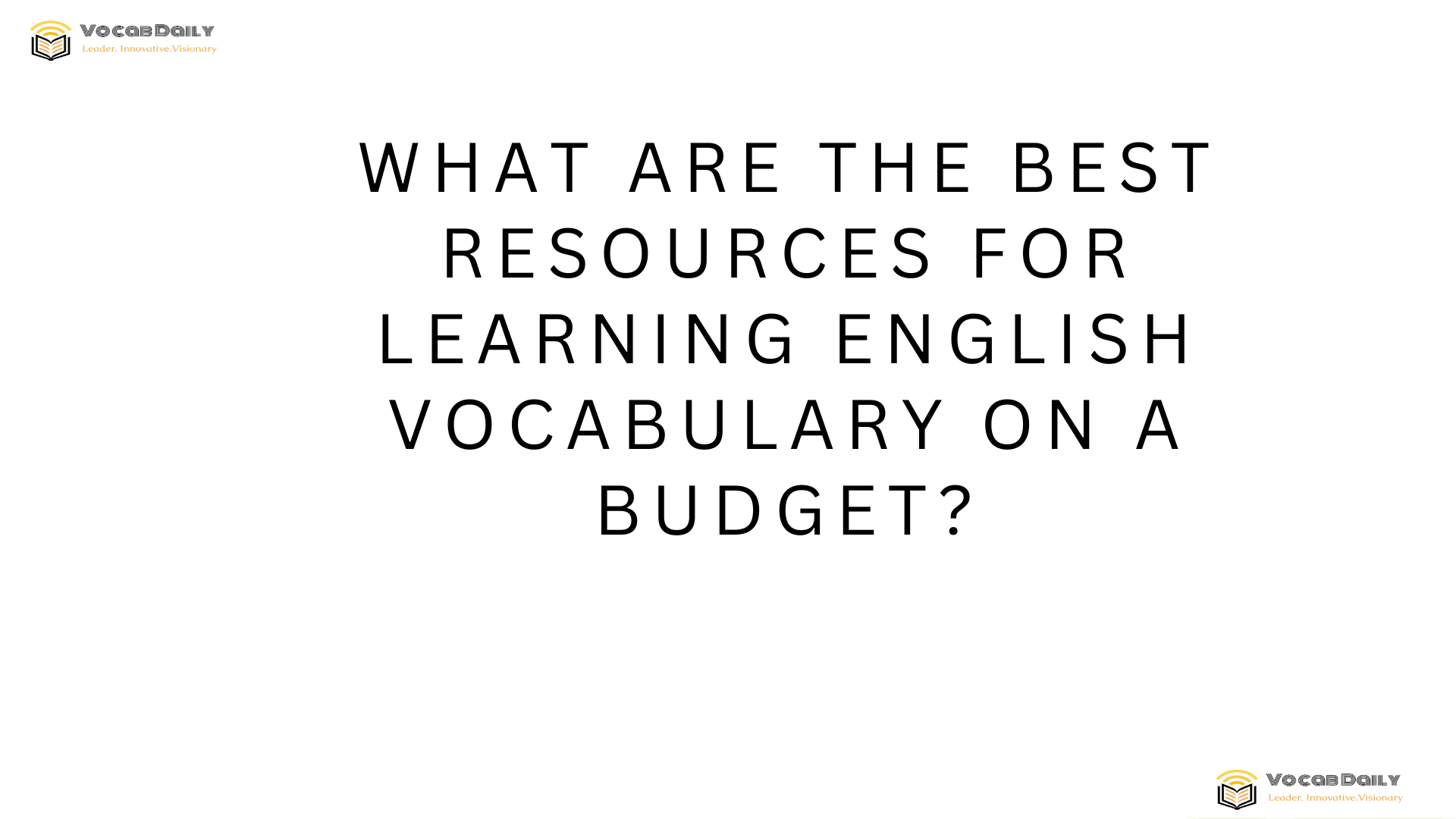Free Online Vocabulary Platforms
Learning English vocabulary effectively doesn’t have to come with a hefty price tag. The internet offers a wide range of free platforms where learners can expand their vocabulary at their own pace. Websites such as Vocabulary.com and Memrise provide interactive and user-friendly tools that help learners practice words through various formats including flashcards, quizzes, and games. These platforms encourage daily learning habits with personalized word lists, making vocabulary acquisition both engaging and budget-friendly.
Mobile Apps for Vocabulary Building
Mobile applications have revolutionized the way people learn languages. Many English vocabulary apps are available for free or at a very low cost, offering dictionary features, word challenges, and immersive language games. Apps like Duolingo, Anki, and Quizlet allow users to study on the go, fitting vocabulary practice into any daily schedule. These apps often use spaced repetition techniques, which enhance retention and help learners remember words longer by revisiting them at optimal intervals.
YouTube Channels Offering Vocabulary Lessons
YouTube hosts countless channels dedicated to English learning. Many create content specifically geared towards vocabulary building in fun and contextual ways. Channels like Learn English with Emma or BBC Learning English provide themed vocabulary lessons ranging from beginner to advanced levels. These videos offer pronunciation tips, example sentences, and cultural insights to help learners understand and remember new words. Because they are free and accessible from anywhere, YouTube channels are a superb resource for vocabulary enhancement on a budget.
Community Libraries and Language Exchange Groups
Local community libraries often provide free access to English learning resources such as textbooks, workbooks, and vocabulary guides. Many offer language learning clubs or conversation groups where learners can practice new vocabulary in a real-world context. Additionally, language exchange meetups allow English learners to connect with native speakers or other learners for free practice sessions. These face-to-face or virtual group activities enhance vocabulary retention by using words in conversation, an essential step beyond rote memorization.
Affordable English Vocabulary Books
For those who prefer traditional methods, low-cost vocabulary books can be found both online and in bookstores. Titles like “English Vocabulary in Use” series provide clear explanations, contextual examples, and exercises suitable for various learning levels. Buying second-hand books or eBooks can further reduce expenses. Many affordable workbooks also come with CDs or access to online content, combining print and digital learning to strengthen vocabulary skills efficiently without straining your budget.
Podcasts and Audio Resources
Listening to English podcasts is another effective and economical way to build vocabulary. Podcasts geared toward language learners focus on daily conversations, idioms, and vocabulary in context. Shows like “The English We Speak” by BBC or “All Ears English” offer episodes that explain new words and phrases with examples. Since podcasts are often free and accessible via smartphone or computer, they provide a convenient option for learners to improve their English vocabulary during commutes or daily routines without any cost.
Social Media and Language Learning Communities
Social media platforms such as Instagram, Twitter, and Facebook host countless pages and groups focused on English vocabulary. These communities often post daily words, phrases, and quizzes that encourage followers to engage with new vocabulary regularly. Hashtags like #LearnEnglish or #EnglishVocabulary guide learners to posts that can broaden their language skills interactively. Joining language learning forums also allows for sharing tips and resources, making vocabulary learning more dynamic and supportive without spending money.
Using Flashcard Systems Creatively
Flashcards have long been a favorite tool for vocabulary memorization due to their simplicity and effectiveness. Traditional flashcards can be homemade with index cards, while digital flashcard apps like Anki and Quizlet offer customizable decks and community-shared word lists. Creating your own flashcards tailored to your learning pace helps reinforce word meanings and spellings. Utilizing flashcards regularly, especially with spaced repetition, is a cost-effective method to retain new vocabulary over time.
Engaging with English Media and Literature
Immersing yourself in English media is a natural way to learn vocabulary in context. Watching TV shows, movies, or reading books and articles suited to your proficiency level can expose you to new words and idiomatic expressions. Many public domain books are available for free through sites like Project Gutenberg, providing access to classic literature without expense. Moreover, subtitles and reading with a dictionary on hand help deepen understanding. Consistent exposure through media can make vocabulary learning an enjoyable part of your daily routine.
Practice through Writing and Speaking
Active use of new vocabulary solidifies learning faster than passive recognition. Writing short stories, journal entries, or essays using newly learned words encourages practical application and creativity. Similarly, speaking practice with friends, tutors, or language exchange partners allows learners to incorporate vocabulary naturally in conversations. Setting daily or weekly word goals, then implementing them in writing or speaking tasks, helps in retaining vocabulary and improves confidence. Many free online forums or social media groups facilitate these language exchanges without any cost.
Also check out VocabDaily workbook collections.

Leave a Reply